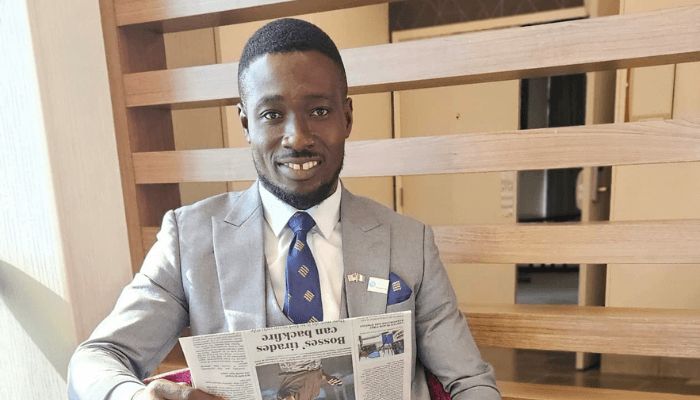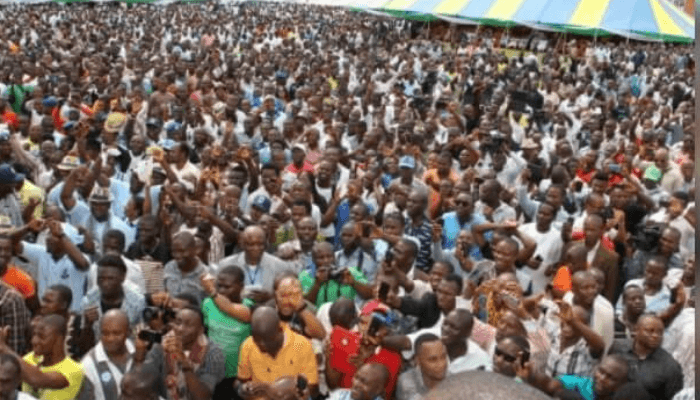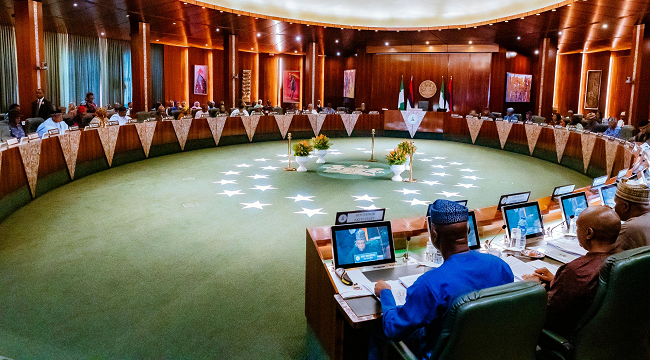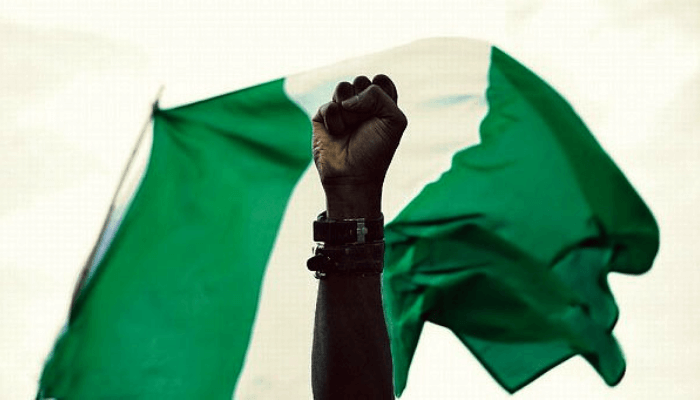Daniel Anazia, a youth enterprise advocate and founder of Sunbridge Consulting, Asaba, Delta State, recently joined the 2025 Mandela Washington Fellows. In this interview with Mercy Enoch, he speaks on nation-building, youth empowerment, and US-Africa Trade. Excerpts:
What are you bringing back to Nigeria, the South-South, and particularly Delta State from your recent trip? How would the Nigerian economy benefit?
Thank you. My recent trip to the United States as a 2025 Mandela Washington Fellow was both enlightening and transformational. The fellowship, a flagship initiative of the U.S. government to support emerging African leaders, deepened my capacity to lead with purpose and strategy. It provided me with global lens and practical exposure to innovation, economic inclusion, and entrepreneurship ecosystems. From the marketplace simulations with the phenomenal Professor Sharon Simmons to site visits to places like the Gulf Blue Innovation Hub at the Port of Gulfport, to engagements with the U.S. Commercial Services, the Mayor of Hattiesburg and the Mississippi senate—I gained real world insights into how local solutions are scaled through investment readiness, partnership, structure and infrastructure.
A core part of the Fellowship was the Common leadership curriculum, taking the CliftonStrenghts Assessment revealed my top natural talents and gave me a deeper understanding of how to lead authentically. This strength-based approach to leadership encouraged self-awareness and collaboration, helping me appreciate not just what I do best but how to work better with others to drive meaningful change.
Equally important is the network of fellows from 49 African countries I engaged with. Over 600 of us all working in different sectors across the continent but united by one goal: to build a better Africa.
What I’m bringing home is more than just knowledge—it’s a replicable framework. I plan to deepen support for Micro, Small and Medium Enterprises (MSMEs) in Delta State and across Nigeria through initiatives that improve access to finance, strengthen market linkages, and scale enterprise training. First, I will be engaging with key public and private sector stakeholders to foster subnational economic conversations particularly around infrastructure, trade facilitation and entrepreneurship. During the fellowship I developed a Delta State Investment Profile, which I shared with some stakeholders in Mississippi, and I’m working on presenting it to the Delta State Government. This is part of a broader project I’m working on a “U.S.–Nigeria Subnational Trade & Investment Dialogue” aimed at fostering and deepening bilateral engagement at the state level.
Secondly, I would continue working directly with youths and MSMEs. I am launching an initiative to train 5,000 youth and MSMEs on financial literacy, investment readiness, and economic literacy. I would be partnering faith-based organizations, business clusters and community organizations to ensure wide reach. I want to help create a generation of MSME leaders who are bankable, fundable and Trade-ready.
The U.S. seems to be evolving its foreign policy from “aid to trade.” Can you explain this approach and how it might impact Nigeria’s economy?
Yes, while there are uncertainties with the recent tariff changes associated with evolving Trump-era economic policies, the underlying message is clear: the U.S. wants to build transactional, trade-driven relationships. In May 2025 in Côte d’Ivoire, the U.S. government formally launched its commercial diplomacy strategy for sub-Saharan Africa, signaling the shift from aid-led development to trade and investment-driven engagement. During the launch, Ambassador Troy Fitrell, then Acting Head of the Bureau of African Affairs, noted: “For too long, we prioritized development assistance over commercial engagement. Going forward, aid will be channeled through expanded trade and private investment because the private sector—not assistance—drives growth.” He also stated that U.S. Ambassadors will now be evaluated based on the commercial deals they help facilitate, not simply on aid disbursements.
This shift offers significant implication for Nigeria’s economy. On the positive side, it encourages private sector-led growth, expands access to investment capital and could promote country level competitiveness. If we are proactive, we can benefit from commercial partnerships, investment facilitation and job creation through integration into global value chains. It also aligns with Nigeria’s need for long term sustainable economic reforms rather than short term aid dependency.
However, this shift also comes with challenges. Trade and investment require readiness, including strong institutions, clear policies, security, infrastructure and ease of doing business. Countries that are not prepared or that lack trade architecture may be left behind. Furthermore, NGOs and communities that previously relied on US development assistance may face funding shortfalls as donor priorities shift towards profit driven partnerships. Without deliberate policy actions, this could widen regional and societal inequalities.
For Nigeria, this means we must reposition ourselves not as aid recipients but as trade partners. It is important we are deliberate and intentional in courting foreign missions and export development agencies. Our focus should now be on transactions, business deals, trade facilitation, diaspora investment and value chain development, not just donor funding. There’s a new U.S. Ambassador overseeing African Affairs, Jonathan Pratt, and it is critical that the Federal government begin early engagement to align with this transactional model.
I am particularly passionate about advancing subnational (i.e. State level) trade conversations. The top-down approach has not delivered results. Nigerian states must also step up and proactively engage the U.S. ambassador and trade agencies, not just for grants, but for technical know-how, partnerships, and private investment. They should develop robust trade and investment architecture, and position themselves as credible trade hubs.
Do you think Nigeria’s current approach to building its economy is the right way?
I think the government is trying, no doubt. We have the right ambitions—diversification, industrialization, youth empowerment—but policies are fragmented, implementation is weak, and there’s limited synergy between federal and subnational actors. We focus heavily on macroeconomic indicators—forex, inflation, interest rates—but we do far too little to stimulate the microeconomic engine -MSMEs, informal sector entrepreneurs, and decentralized production hubs.
From what I observed in the U.S., every county, every state had its own economic development plan. Local governments are empowered and responsible for their own economic future. I strongly recommend this bottom-up accountability model to inform Nigeria’s own development playbook. It is important we decentralize economic growth strategies and empower states and LGAs to lead in production, and job creation.
One area that struck me deeply during my U.S. trip was the issue of port infrastructure and trade competitiveness. The U.S. has over 30 major international ports. Canada has 17. The UK has 15. Mexico has 20. China has over 30. Nigeria? Only one major port—Lagos—functions efficiently. This is a huge constraint on trade, investment, and competitiveness. How can a country of over 200 million people thrive with just one deep-sea port? If Nigeria wants to play seriously in global markets and drive economic growth, we must reform our ports and open up other coastal regions like the Niger Delta for maritime commerce. If we strengthen our ports, digitize trade processes, and de-risk key sectors, Nigeria can attract U.S. private capital and technology that stimulate job creation and local manufacturing. These are conversations state government should be courting investors, the US ambassador to facilitate investment on.
Also we must also learn the art of collaboration. In the U.S., I saw how government, the private sector, universities, and energy providers work together to drive innovation and development. That model of intersectional collaboration is something Nigeria desperately needs. No one sector can fix the country alone.
What’s your suggestion on how to fix Nigeria’s economy and curb the mass youth exodus?
I think one of the major drivers of the “Japa” syndrome is economic disillusionment, generally, we young people hardly see a viable future in Nigeria. The system isn’t working for our interest and the rising insecurity has further eroded confidence. We are leaving not just for better jobs but for stability, dignity and a sense of order.
Before we begin talking about curbing mass exodus, the government must first demonstrate a genuine commitment and willingness to create an enabling environment. I think Nigerians want to stay but we need to see that staying is worth it. To reverse the tide of youth migration, we must build a country where dreams are possible and viable; that’s why we love America, it is a country where one can achieve the American Dream. We need to be able to purse and achieve our Nigerian Dream. One quick win would be to slash the salaries of all elected officials from local government, state and federal government and deposit the money in the bank of industry and Agriculture to finance MSMEs access to loans and equity investment. If we want to fix this, we must:
Invest in infrastructure that enables thinking and building. Three basic things come to mind: Let there be light. Let there be security. Let there be stable internet. If I have power, I don’t need to go out searching for where to charge my battery. If I feel safe, I can work late, build more. If I have the internet (affordable), I can connect to the global market from my room. These are not luxuries; they are enablers of growth and businesses can operate efficiently.
Expand infrastructure investment in ports, logistics, and trade zones. We must decentralize economic opportunities beyond Lagos and Abuja to Aba, Nnewi, Benue, Jos, Warri, Kano
Drive innovation and industry at the state level, especially in agriculture, light manufacturing, tourism, tech, and trade. Strengthen innovation hubs and support skill-based entrepreneurs—tailors, beauticians, shoemakers, artisans—because they are the heart of our informal economy.
A national mindset shift is needed. As JFK said, “Ask not what your country can do for you, ask what you can do for your country.” And it has to start with our leaders. They have to demonstrate their commitment and willingness to solve Nigeria’s challenges before tasking the citizen. Nigeria’s economic revival will not come from outside. It must be local, owned, and driven.
We don’t need everyone to stay—but we need enough hope here that leaving becomes a choice, not a survival strategy.
As a Mandela Washington Fellow and youth advocate, what’s your dream for Delta State, South-South Nigeria, and the country at large over the next five years?
Nelson Mandela once said “it is in our hands to make the world a better place”. My dream is to see more generation of Nigerian youth who are job creators, not job seekers. I envision a Delta State that is globally competitive, locally driven, and powered by youth and enterprise. Over the next five years, I see a youth population that is financially empowered, productively digitally connected and globally competitive. I want Nigeria to reclaim its place in the world not just through oil, but through enterprise, culture, and innovation.
My personal contribution is to train 5,000 young people and MSMEs in investment readiness and financial literacy, starting from Delta State, then expanding nationwide. And I hope this effort triggers a domino effect of empowerment across the country.
One of my biggest takeaways from this fellowship is that each local government, each state must own its economic destiny. We can no longer wait for “Abuja.” The top-down model has its place, but we must build from the bottom up and I’m working towards advancing subnational trade conversations, connecting states like Delta and Mississippi, and activating mutually beneficial partnerships with embassies, trade offices, and platforms like the U.S. Commercial Services, U.S. DFC, and EXIM Bank, and to transform good ideas into scalable businesses.
Because in the end, nation-building is not just government work—it’s leadership at every level. Together, we can pivot from a consumptive economy to a productive, export-driven, youth- powered economy. The future of Nigeria is not predestined—it’s purposeful. And it is in our hands.
What’s your final thoughts?
I am profoundly grateful to the Faculty & Staff of Jackson State University College of Business, the US Missions in Nigeria and the U.S. Government for this opportunity. The Mandela Washington Fellowship is more than a program—it is a generational investment and demonstration of US commitment to Africa’s future. This experience has equipped me not just to lead—but to build. And I plan to use it for the transformation of my state, my region, and my country. If you’re interested in collaboration, partnerships, or following the work I do with Sunbridge Consulting, feel free to connect via linkedin . Because the truth is—Nigeria can work. But only if we do.











